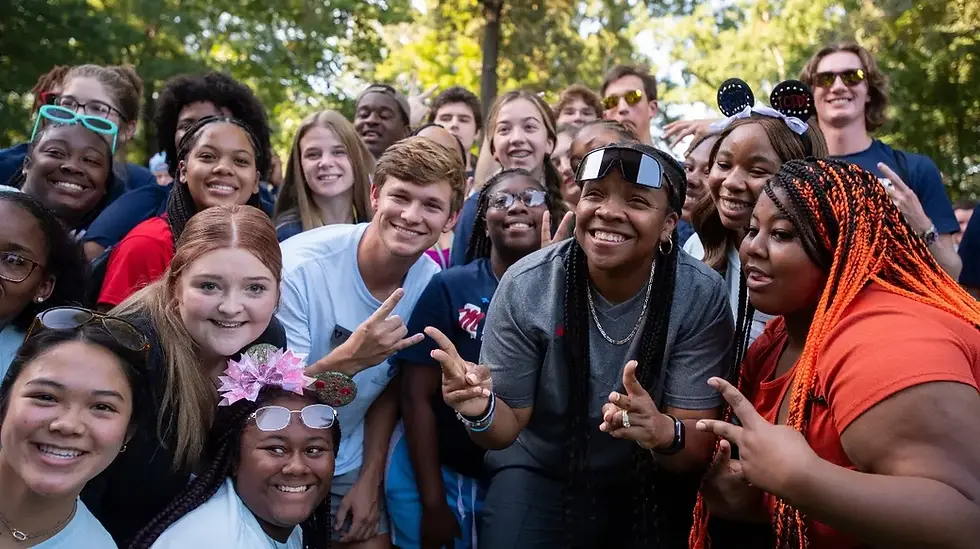A college degree with no heavy lifting: Ohio State will require 'AI fluency'
- Joanne Jacobs

- Jun 11, 2025
- 2 min read
Imagine joining a gym that offered a variety of exercise machines to build strength and aerobic fitness. You choose the Artificial Exercise option: The machines will lift weights up and down far more efficiently than you could. The automated cycle will spin, the treadmill will roll, the rowing machine will row, giving you more time to watch videos of people playing sports. Yet, despite all that time at the gym, you do not get stronger or fitter.

Artificial intelligence will be "embedded" into every undergraduate class, ensuring AI proficiency, Ohio State has announced. The "ambitious initiative" will produce "graduates who not only have technical AI skills but also a rich understanding of how the ethical, secure use of AI tools can be harnessed for good across disciplines, whether health care, computer science, agriculture or the humanities," the university declared.
Some scoffed. College students have learned to use AI with amazing speed, and they know how to get their favorite bot to explain the ethics and outline AI's benefits.
Writing in The Atlantic, Conor Friedersdorf suggests a different approach. His alma mater, Pomona, should offer a low-tech education, marketing itself as a place where humans discuss ideas with other humans, he writes.
Some students at the private liberal-arts college have founded a "Luddite Club," which hosts a weekly "tech-free hangout," he writes.
Seminars should be tech free, wrote Elias Diwan in The Student Life. Laptops and tablets are distractions for users and their classmates. Discussions in his two no-tech seminars are much richer, he writes. "I find that I actually take the time to fully consider my professors’ open-ended questions. I don’t feel the urge to tune out from a longer monologue and check my texts or emails."
"Professors at schools such as the University of Virginia and the University of Maryland are banning laptops in class," writes Friedersdorf. For Pomona, a small residential college, it's especially important to build a community where students learn from each other. "Such a model ceases to work if many of the people physically present in common spaces absent their minds to cyberspace."
He envisions "nudging students during orientation to get flip phones, forging a tech-free culture at one of its dining halls, creating tech-free dorms akin to its substance-free options –– something that tiny St. John’s College in Maryland is attempting –– and publicizing and studying the tech-free classes of faculty members who choose that approach."
Very soon, perhaps in the fall, "most students will arrive at Pomona already adept at using AI," writes Friedersdorf. "They will benefit even more from the college teaching them how to think deeply without it.






Back in the 70's, I was a chemistry major at a small private college. My junior year I took physical chemistry. 6 people-1 borrowed calculator. Next year same class had 6 people and 6 owned calculators. (and I owned one by that time as well.)
I agree with the folks who are concerned about AI, I don't expect sci-fi type of disasters, but it does take a lot of power for something that is of questionable value.
I remember graduating into a time of great change in 1980. My senior year in high school they added a class called "keyboarding" in the math department. I had taken typing in 9th grade.
I entered an engineering program in January of 1981. The prior semester they had taught the slide rule for the last time. I took mechanical drawing that semester. Within a year, you had to have a personal computer to enter the engineering program and they were moving to CAD classes. I learned BASIC and then did FORTRAN on punch cards. I switched to Physics and my junior year, a salesman give a pitch for this thing called a Macintosh. I did my entire engineering /Physics …
My eldest and her partner have both just finished their masters in CE. They are highly skeptical of AI, believe lots of the output is garbage (GIGO), and that the resources it is eating up are problematic. He's now getting an MBA and says the AI classes in his program are actively wrong about it: the professors don't know what they're talking about. He says it's painful to sit in the class and listen to. I wouldn't expect a universal requirement like this to be any better.